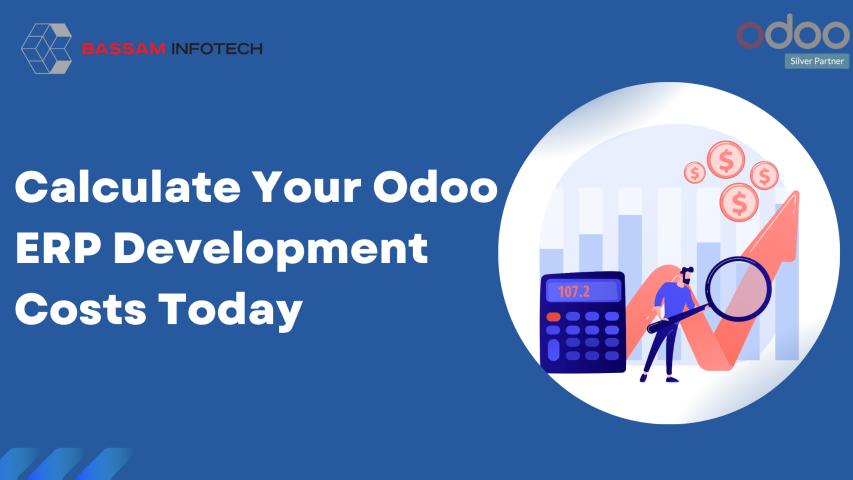Odoo stands out as a versatile, open-source ERP platform that many businesses have adopted to enhance their operations. It provides tools for various functions, including finance, human resources, and customer relationship management. However, since each industry has distinct requirements, relying solely on standard solutions can be limiting. This is where Odoo module development becomes essential. By creating custom modules, organizations can adapt Odoo to meet their specific needs, no matter how specialized their sector may be.
In this article, we will delve into the significance of Odoo module development and how it can cater to industries like manufacturing, retail, healthcare, education, and professional services.
What is Odoo Module Development?
Odoo module development is the process of creating tailored functionalities within the Odoo platform to address specific business needs. While Odoo includes various pre-existing modules—such as those for sales, inventory, and accounting—not all requirements can be met with these out-of-the-box options. Custom module development allows businesses to expand Odoo’s capabilities, automating processes, integrating specialized tools, and building new features that align with their operations.
One of Odoo's most significant advantages is its modular architecture, which allows developers to create a range of modules, including:
- Functional modules that introduce new business processes (like invoicing, payroll, and procurement).
- Technical modules that enhance system performance or connect to third-party software.
- Industry-specific modules that fulfill specialized needs such as healthcare compliance or eCommerce workflows.
This adaptability means that Odoo can grow alongside businesses, ensuring the ERP system remains relevant and effective.
The Importance of Custom Solutions for Different Industries
Every industry encounters unique challenges, from managing inventory in manufacturing to overseeing patient records in healthcare. Standard ERP solutions often lack the specificity required to meet these unique demands. Custom module development within Odoo allows businesses to tailor their systems to fit their specific workflows and operational needs.
For instance, a retail business may require a specialized inventory management system compatible with various eCommerce platforms, whereas a healthcare facility might need a comprehensive patient management system that adheres to industry regulations. In both cases, custom Odoo modules offer the flexibility necessary to improve operational efficiency and ensure that businesses are not hindered by the limitations of generic ERP software.
Without these tailored solutions, companies may struggle with inefficiencies or rely on cumbersome manual workarounds. Odoo module development addresses these challenges by providing a custom approach that promotes efficiency and growth.
Odoo Module Development for Various Industries
Manufacturing
Manufacturers operate in a complex environment where effective management of inventory, production, and supply chains is critical. Custom Odoo modules can enhance these operations by automating production scheduling, tracking inventory in real time, and integrating with IoT devices for equipment monitoring. Tailoring Odoo to fit their processes allows manufacturers to boost productivity and lower operational costs while gaining better insights into their production lifecycles.
Retail & eCommerce
The retail industry thrives on delivering exceptional customer experiences and maintaining efficient supply chain management. Custom Odoo modules can improve customer relationship management (CRM), optimize product handling, and offer real-time integration with eCommerce platforms like Shopify or WooCommerce. These modules can also automate marketing initiatives, loyalty programs, and personalized promotions, aiding businesses in increasing sales while minimizing administrative efforts.
Healthcare
Healthcare organizations face the dual challenges of managing sensitive patient information and ensuring compliance with regulations. Custom Odoo modules designed for healthcare can assist in managing appointments, processing billing, and maintaining electronic health records (EHR). Additionally, these modules can connect with healthcare systems for lab results and imaging, ensuring smooth and secure data flow throughout the organization.
Education
Educational institutions require solutions that cater to student records, course management, and online learning. Custom Odoo modules can streamline student admissions, create schedules, and manage faculty assignments. Furthermore, they can integrate with learning management systems (LMS) to provide remote education, ensuring a seamless educational experience for students and educators alike.
Services and Consulting
In service-based industries like consulting, effective project management and time tracking are essential for profitability and client satisfaction. Custom Odoo modules can deliver advanced tools for managing contracts, tracking billable hours, and forecasting project timelines. These solutions enable service providers to improve client outcomes and enhance both internal processes and client relationships.
Key Benefits of Odoo Module Development
The advantages of custom Odoo module development are numerous:
- Flexibility: Adapt the system to meet your unique business needs, regardless of how specific they are.
- Scalability: As your business evolves, your Odoo platform can evolve with it, with custom modules easily modified or expanded.
- Automation: Streamlining workflows reduces the risk of human error, boosts productivity, and allows teams to concentrate on strategic initiatives.
- Integration: Custom modules facilitate seamless connections with third-party applications and tools, from accounting software to IoT devices.
How to Start with Odoo Module Development
Embarking on Odoo module development begins with a clear understanding of your business requirements. Start by identifying gaps in your current system and defining your key operational objectives. Next, partner with a reputable Odoo developer or development team who can assist you throughout the process, from requirement gathering to development and testing. A solid development process should include:
1. Gathering requirements based on your specific business needs.
2. Developing the custom module with a focus on flexibility and scalability.
3. Thoroughly testing the module before deploying it in your production environment.
Conclusion
In today’s rapidly changing business landscape, generic ERP solutions often fall short of meeting industry-specific demands. Odoo module development provides the tailored solutions organizations need to succeed. By customizing the Odoo ERP platform to their unique requirements, businesses can improve productivity, streamline operations, and foster long-term growth. For any organization looking to optimize workflows and enhance efficiency, investing in custom Odoo modules is a wise decision that yields significant benefits.









